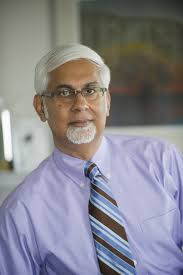Robust technology clusters are not new: Route 128 in Massachusetts and Silicon Valley in California are the original clusters. Recently there has been a huge worldwide interest in regional economic growth organized around technology clusters. The key components of these clusters these days are what are known as “Eds and Meds”. Universities and medical centers are increasingly the core of these new technology clusters. Boston/Cambridge, San Francisco/Bay Area and New York City are example of leading Eds and Meds clusters but there are has been rapid growth of such clusters in other cities such as Philadelphia, San Diego, Houston. In the Boston area it has been a combination of industry, universities, academic medical centers, state and city governments, venture capital and non-profit organizations that have allied to produce the latest version of the “Massachusetts Miracle”. Besides the world beating universities and academic medical centers here, of note are several organizations that have had major impact:
State Government: Mass Ventures (http://www.mass-ventures.com) established 37 years ago helped spawn the private venture capital industry and continues to invest in promising entrepreneurs that are overlooked by private capital. Mass Life Sciences Center (http://www.masslifesciences.com) has been instrumental in boosting the biotech industry by attracting established companies, backing startups and educating talent. Mass Clean Energy Center (http://www.masscec.com) has kindled a renewable energy revolution and supported promising technology startups.
Industry: Massachusetts has seen its dominance in industries wax and wane for decades. We continue to have a broad based industrial base in large segments such as computers, aerospace, telecommunications, biotech, medical devices, entertainment, semiconductors, retail and financial services. Recently the CEOs of 16 key Massachusetts companies formed Massachusetts Competitive Partnership (www.masscompetes.org) to influence public policy to keep Massachusetts on top.
Non-Profit: The nonprofit sector in Massachusetts is as vast with $227 billion in total revenue and more than 16% of the state’s workforce. In the technology segment organizations such as Mass Technology Leadership Council (www.masstlc.org), TiE Boston (www.tie-boston.org), Mass Challenge (www.masschallenge.org), ENET (http://www.boston-enet.org/july-16-2015), Entrepreneurship for All (http://www.eforall.org), LearnLaunch Institute (http://www.learnlaunch.org) and many others are encouraging and educating entrepreneurs and companies to launch and grow.
Venture Capital: The first venture capital firm American Research and Development was formed in Cambridge in the 1950s. Since then there has been a massive growth in venture capital in many forms: traditional firms such as Matrix, Northbridge, Charles River Ventures; Micro VCs such as Founder Collective, CommonAngels; Angel Groups such as Hub Angels, Launchpad Angels; Accelerators such as TechStars, LearnLaunch, Bolt.


3 Comments
Yogesh Sharma posted on July 9, 2015 at 9:40 am
Nice summary of what makes Mass economy unique!
John Leggett posted on July 9, 2015 at 3:00 pm
Every time I visit Boston/Cambridge, I am amazed at the further development of the “Massachusetts Miracle” – very informative article.
Bill Asher posted on July 10, 2015 at 9:10 am
Nice job pulling together many of the key players in the Massachusetts innovation economy ecosystem.